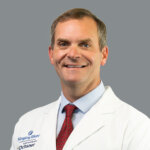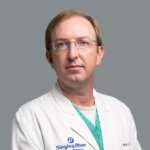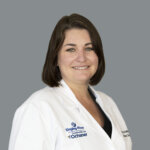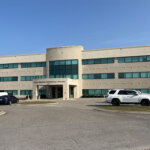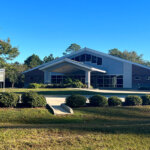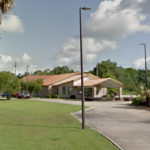GERD Surgery
Cutting-edge treatments for GERD, including minimally-invasive surgical options.

What is Gastroesophageal Reflux Disease (GERD)?
Although “heartburn” is often used to describe a variety of digestive problems, in medical terms, it is actually a symptom of gastroesophageal reflux disease. In this condition, stomach acids reflux or “back up” from the stomach into the esophagus. Heartburn is described as a harsh, burning sensation in the area in between your ribs or just below your neck. The feeling may radiate through the chest and into the throat and neck. Many adults in the United States experience this uncomfortable, burning sensation at least once a month. Other symptoms may also include vomiting or regurgitation, difficulty swallowing and chronic coughing or wheezing.
What Causes GERD?
When you eat, food travels from your mouth to your stomach through a tube called the esophagus. At the lower end of the esophagus is a small ring of muscle called the lower esophageal sphincter (LES). The LES acts like a one-way valve, allowing food to pass through into the stomach. Normally, the LES closes immediately after swallowing to prevent back-up of stomach juices, which have a high acid content, into the esophagus. GERD occurs when the LES does not function properly allowing acid to flow back and burn the lower esophagus. This irritates and inflames the esophagus, causing heartburn and eventually may damage the esophagus. A few patients may develop a condition in which there is a change in the type of cells in the lining of the lower esophagus, called Barrett’s esophagus. This is important because having this condition increases the risk of developing cancer of the esophagus.
What Contributes to GERD?
Some people are born with a naturally weak sphincter (LES). For others, however, fatty and spicy foods, certain types of medication, tight clothing, smoking, drinking alcohol, vigorous exercise or changes in body position (bending over or lying down) may cause the LES to relax, causing reflux. A hiatal hernia is found in many patients who suffer from GERD. This refers to the condition in which the top part of the stomach bulges above the diaphragm and into the chest cavity. This phenomenon is thought to contribute to the development of acid reflux. Surgery for GERD also fixes the hiatal hernia.
What Are My Treatment Options?
- Lifestyle and dietary changes
- Medication
- Minimally invasive surgical procedures:
- Laparoscopic fundoplication
- LINX procedure
- Hiatial hernia repair
